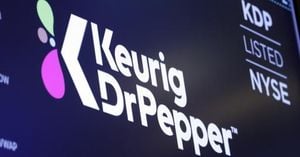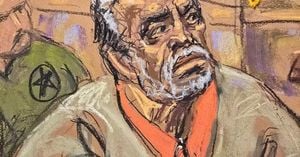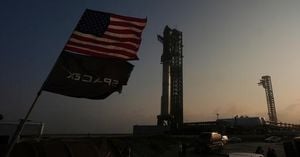On August 24 and 25, 2025, Venezuela’s political landscape shifted—if only slightly—when the government of President Nicolás Maduro released 13 political prisoners, a move that opposition leaders and civil society groups immediately hailed as a step forward. The news, first shared by prominent opposition figure Henrique Capriles, sent ripples through a country long accustomed to political repression and international scrutiny. But was this a turning point or just another calculated gesture in the ongoing tug-of-war between Maduro’s government and its critics?
According to reports from BTA, DPA, and echoed by opposition figures, the group of released prisoners included high-profile names such as former deputy Américo de Grazia and opposition leader Pedro Guanipa. Capriles confirmed on the social media platform X that eight of the detainees were fully freed: Víctor Jurado, Simón Vargas, Arelis Ojeda Escalante, Mayra Castro, Diana Berrío, Margarita Assenzo, Gorka Carnevalli, and Américo de Grazia. Five others—Nabil Maalouf, Valentín Gutiérrez Pineda, Rafael Ramírez, Pedro Guanipa, and David Barroso—were placed under house arrest, a halfway measure that leaves them technically out of prison but far from free.
“Today, several families have been reunited with their loved ones. We know that many remain, and we will not forget them; we continue fighting for them all,” Capriles wrote, as reported by Devdiscourse and BTA. His message, accompanied by a video showing one of the released prisoners embracing family, captured both the relief and the ongoing anxiety felt by Venezuela’s opposition. Capriles added, “Let there be no doubt: we will continue fighting for a country where no one is behind bars for their way of thinking. We have always said it and we stand by it: we will talk to whoever we need to talk to so that there is not a single political prisoner in our Venezuela!”
The context behind the releases is as complex as Venezuela’s recent history. The detainees had been swept up in the aftermath of the July 2024 presidential elections, which saw Maduro declared the winner by an electoral commission widely considered loyal to his regime. The opposition and much of the international community dismissed the results as fraudulent, citing the commission’s refusal to release key vote count documents, known locally as "actas." According to BTA and Devdiscourse, this triggered widespread protests that left 28 dead, 220 injured, and at least 2,000 detained—numbers that speak to the scale of unrest and the government’s heavy-handed response.
“Being a relative of political prisoners is another way of being imprisoned. Life changes. The uncertainty and anguish are constant. Bringing food and medicines daily to two different prisons is a tremendous effort,” said Tomás Guanipa, brother of Pedro Guanipa, as cited by Celebritax. This perspective underscores the deep, personal toll of Venezuela’s ongoing political crisis, stretching well beyond those actually behind bars.
Despite the releases, the shadow of repression lingers. The non-governmental organization Foro Penal estimates that more than 800 political prisoners remain incarcerated, while the Committee for the Freedom of Political Prisoners puts the figure closer to 1,000. The group posted on social media that those released had “physically and psychologically deteriorated” and were returning home with “open wounds.” Yet, the government continues to deny that it holds anyone for political reasons, insisting instead that detainees are part of plots to destabilize the country.
What prompted this sudden act of leniency? Most observers point to a surge in international pressure. In the week leading up to the releases, President Donald Trump’s administration deployed a formidable U.S. naval combat group to the Caribbean. The task force, comprising three guided missile destroyers (USS Sampson, USS Jason Dunham, USS Gravely) and three amphibious ships (USS San Antonio, USS Iwo Jima, USS Fort Lauderdale), carried 4,500 personnel, including an expeditionary force of 2,200 Marines. Though the Pentagon did not clarify the mission’s specifics, the White House stated it was aimed at confronting “narcoterrorist” organizations in the region—chief among them, the so-called Cartel of the Suns, which U.S. prosecutors allege is run by Maduro and his top allies. The U.S. also raised the reward for Maduro’s capture to $50 million, an unprecedented amount in Latin America.
“Maduro is not a legitimate president; he is the fugitive leader of a narcoterrorist cartel,” said White House spokesperson Karoline Leavitt, as reported by Celebritax. She emphasized that Trump was willing to use “every tool of American power,” from sanctions to military force. The timing of the prisoner release—coming so soon after these military maneuvers and diplomatic escalations—suggests a clear connection. Analysts and opposition leaders alike interpret the gesture as an attempt by Maduro’s government to ease mounting international pressure and demonstrate a willingness to engage in dialogue, even if only superficially.
But the story doesn’t end there. The releases also follow a recent prisoner exchange involving the United States and El Salvador, in which 10 Americans held in Venezuela were freed in return for deportees sent back to Caracas. According to Devdiscourse and AP, American Secretary of State Marco Rubio noted that a number of Venezuelan “political prisoners and detainees” were also released as part of the deal. The episode highlights the complex geopolitical chessboard surrounding Venezuela, where human lives are often bargaining chips in larger games of power and diplomacy.
For many Venezuelans, the release of 13 prisoners brings both hope and frustration. It’s a relief for families and a rare moment of joy in a country beset by crisis. Yet, with hundreds—possibly over a thousand—still languishing in detention, the move feels like a drop in the bucket. Civil society organizations, opposition leaders, and international observers all agree: the fight is far from over. “We know there are many more, and we do not forget them; we continue fighting for everyone,” Capriles wrote, echoing a sentiment that resonates far beyond the walls of Venezuela’s prisons.
As the U.S. flexes its military muscle in the Caribbean and ramps up pressure on Maduro, all eyes are on Caracas. Will this be the beginning of a genuine thaw, or merely another episode in Venezuela’s protracted struggle for democracy and human rights? For now, families embrace, opposition leaders rally, and the world waits—watching for the next move in a crisis that has already cost so much.




